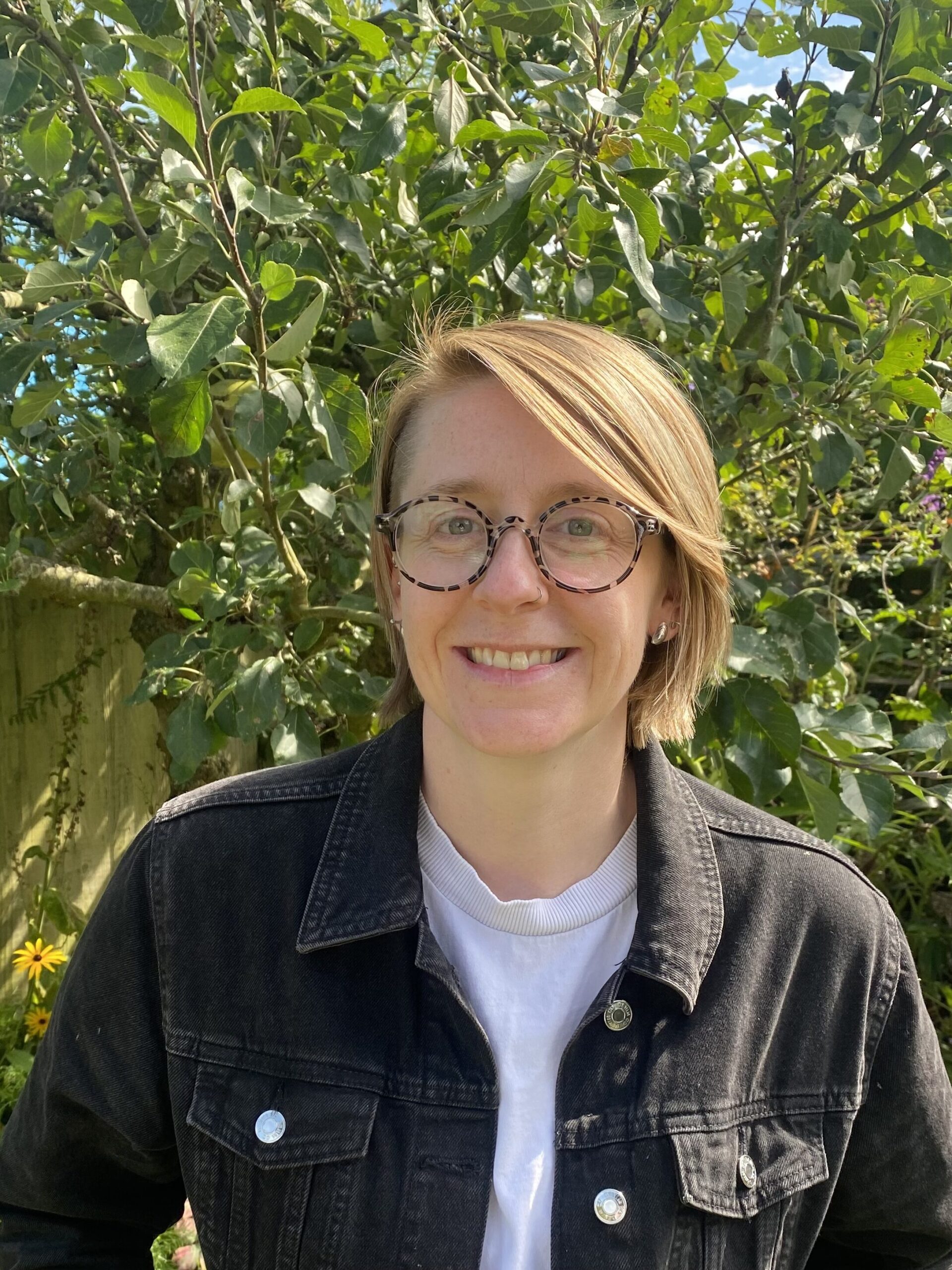
Katherine Hubbard is the 2024-25 Visiting Scholar in Sexuality Studies. Dr. Hubbard is Senior Lecturer at the University of Surrey. Her research and teaching are interdisciplinary, including sociological, psychological and historical components. At present, she is centrally focused on research areas pertaining to feminist histories of Psychology, sexuality, and queer studies. Her work takes a distinctive affirmative and inclusive approach. She is especially known for multi-methods research on queer feminist British history, analysis of gendered power within Psychology and broad applications of queer theory. Her books include Queer Ink: A Blotted History Towards Liberation (2020) and A Feminist Companion to Conceptual and Historical Issues in Psychology (2024). Her current book-based project is Queer Studies: The Basics (due 2025) with co-author and collaborator Dr David Griffiths. Other recent collaborations include, the excavation of feminist voices in Psychology in the UK, an LGBTQ+ inclusive historical analysis of aversion therapy as practised in the UK, and a project studying the role of affect when doing queer history.
She is one of the founding members of the Sex, Gender and Sexuality Research Group at the University of Surrey, is a past Chair of the University LGBTQI Equality Group, and was the first Programme Director for the interdisciplinary MSc course in Sex, Gender and Sexuality studies having established it. She is also a Co-I on the FUTURESEX initiative which aims to bridge academic, activist and community groups and an international member of Psychology's Feminist Voices. She received the American Psychological Association (Society for the History of Psychology Division 26) career award (2024).

Aashraya Seth is a 2025 CFR Visiting Scholar. Aashraya is currently a mid-career Fulbright Fellow at the University of Minnesota's Humphrey School of Public Affairs, a Policy Specialist at the Minnesota Senate, a Member of the Minnesota Menstrual Equity Coalition, and the Founder of Impact91 and Happy Periods, national non-profits working on menstrual equity, girls' education and gender justice. His work is accounted as case studies for the Global South by UN Women, the Gates Foundation, and the Swedish Government, among others. Aashraya is responsible for designing over a dozen non-profit projects in education, environment and public health, cross-cutting gender. His multi-award-winning innovations include building India’s most affordable sustainable menstrual product vending machine at $25, launching a $3 menstrual cup, and a messenger-based chatbot for literacy in SRHR (and a menstrual curriculum), which has impacted over half a million underserved and tribal women and girls.
He studied Physics and Information Systems, before getting his first Public Policy fellowship at Churchill College, University of Cambridge, followed by at the University of Chicago Harris School of Public Policy, Korean Development Institute, United Nations, and HSF Germany. For close to a decade, Aashraya has advised and managed programs for the British, Indian, and Australian governments in the areas of science, technology, space, education, and gender equity, and has contributed to dialogues and policy discussions at the UN and World Economic Forum. He was recently placed amongst the top 80 social innovators in India and the top 50 emerging policy leaders in the world.
Aashraya enjoys writing Op-Eds, and the most recent one was for The Minnesota Daily on The 2024 U.S. elections — a critical juncture for reproductive rights.

Safiyya Hosein is a 2024-2025 CFR Visiting Scholar. Saifyya Hosein holds a PhD from the joint program in Communication and Culture at Toronto Metropolitan University and York University. Her research focuses on Muslim superheroes and Muslim audiences. While she is in residence at the Centre for Feminist Research, she will be working on her upcoming book on Muslim superheroes which is under advanced contract with Ohio State University Press. This book employs an interdisciplinary, anti-racist feminist lens that examines the multi-faceted expressions of Muslim superheroines during the War on Terror as both nuanced representations at some points who also reify the imperial project at other times. Safiyya is currently in the process of conducting new archival research for her book, for which she has won several grants such as The Lucy Shelton Caswell Award at the Billy Ireland Library and Cartoon Museum at Ohio State University and the Michigan State University Visiting Scholars Program Fellowship.
Her work is published in peer-reviewed journals, including Popular Culture Studies Journal, Global Media Journal Canadian edition, The Journal of Graphic Novels and Comics, and Feminist Encounters: A Journal of Critical Studies in Culture and Politics. Her public scholarship can be found in The Conversation, the CBC, Spice Radio, the National Post, and in many international media outlets. As a comics writer, her work appears in The Nib and several comics anthologies. In 2017, she was selected by Vice Media Motherboard for their “Humans of the Year” series.
She can be found on X (the social media site formerly known as Twitter) as @safibelle30.
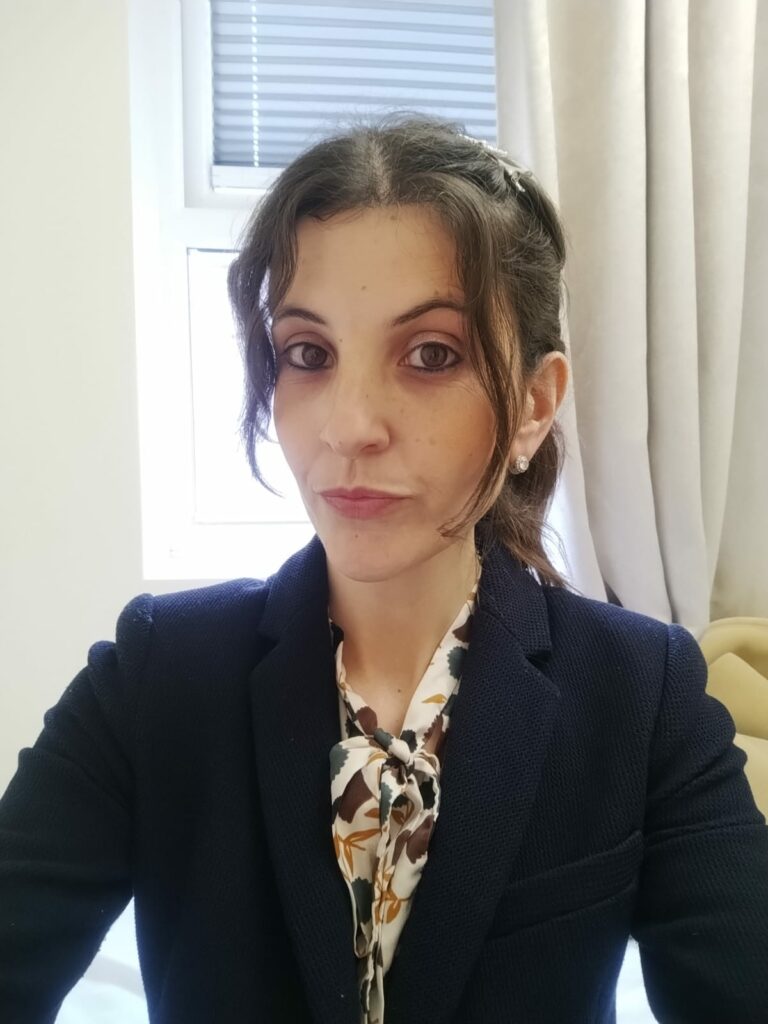
Veronica Frigeni is a 2024-2025 CFR virtual Visiting Scholar. Veronica received her Ph.D. in Italian from the University of Kent in 2018. She has held research positions at the Amsterdam School for Cultural Analysis and served as a Visiting Scholar in Italian at the University of Cambridge. Currently, she is a Visiting Scholar in Residence in Gender Studies at Central European University in Vienna, working on photovoice narratives of queer motherhood and on symbolic representations of motherhood and reproductive justice in artivist works such as graphic novels and street art.
Veronica is the author of a monograph on Antonio Tabucchi and has contributed chapters on topics such as transcultural feminist writers, the uncanny in Giorgio Agamben, postcolonial ecofeminism, matricentric feminism, queer parenting, reproductive justice, and trauma. She is a co-editor of the forthcoming volume Telling Lives: Mothers and Life Writing (Demeter Press) and has been commissioned to translate selected writings by Andrea O’Reilly on matricentric feminism into Italian. Next autumn she will be convening the seminar series “Womb Wor(l)ds” in collaboration with the Centre for the Study of Contemporary Women's Writing (CCWW) at ILCS London. Veronica serves on the editorial board of the Critical Gender Studies Journal. To learn more about Veronica’s scholarship, please visit her page: https://ceu.academia.edu/VeronicaFrigeni.
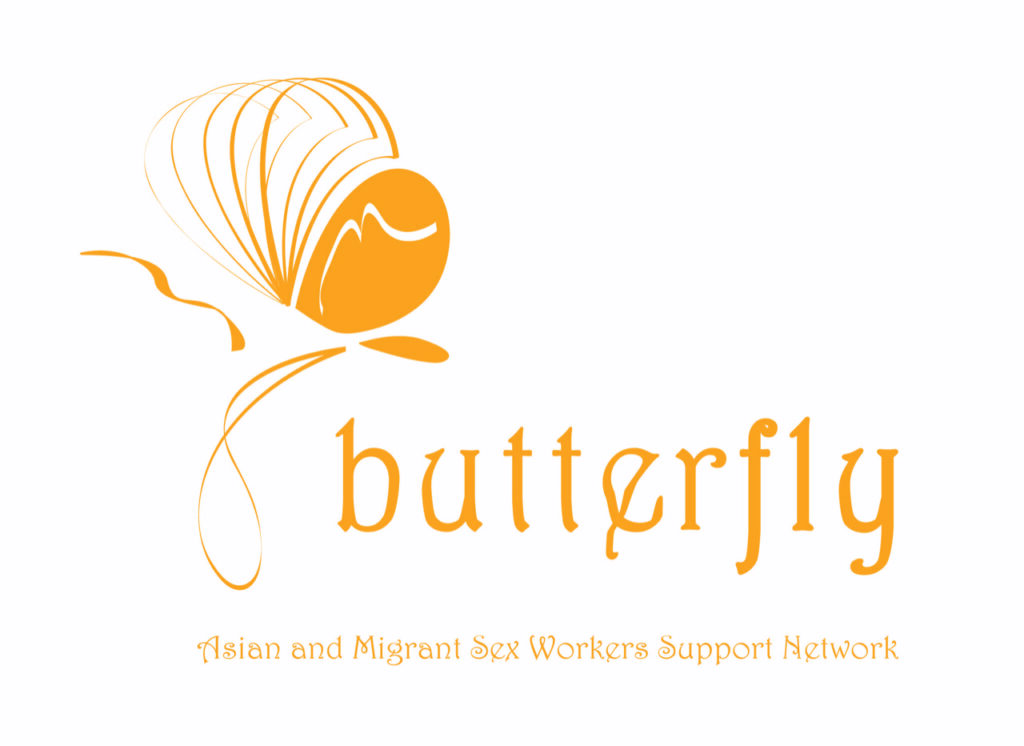
Butterfly: the Asian and Migrant Sex Worker Support Network is the CFR's 2024-2025 Activist Group in Residence.
Butterfly: the Asian and Migrant Sex Worker Support Network was created by sex workers, social workers, legal and health professionals to provide support to, and advocates for, the rights of Asian and migrant sex workers. The organization is founded upon the belief that sex workers are entitled to respect and basic human rights. . Butterfly works to achieve its mission by: building leadership. supporting and providing educational opportunities for Asian and migrant sex workers; promoting safety and dignity for all sex workers and groups impacted anti-sex work legislation, regardless of their gender, race, or immigration status; enhancing access to health, social, labour, and legal rights and services; promoting equality and eliminating racism, stigma, and discrimination against sex workers in general, and Asian and migrant sex workers specifically; facilitating the building of support networks and solidarity among sex workers; facilitating opportunities for the voices of sex workers to be heard in society; and advocating for the human rights of sex workers, decriminalization of sex work and status for all.
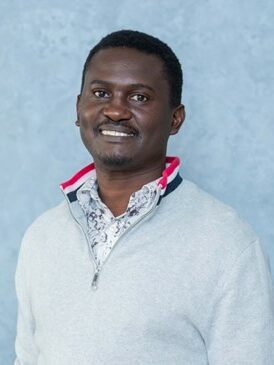
Jimmy Spire Ssentogo is the CFR's 2024-2025 Artist in Residence.
Jimmy Spire Ssentongo (PhD) is an award winning academic and free-lance activist artist, specialising in cartoons. He has drawn editorial cartoons for The Observer newspaper in Uganda since 2006 under the signature ‘Spire’. Many of his cartoons are activist in focus, mostly centering on highlighting social and political injustices.
Increasingly, he shares his cartoons through his social media accounts where they trigger lots of debates.
Although he is mostly known as a cartoonist, his full-time job is in academia, where he teaches Philosophy. He is an associate Professor of Ethics and Identity Studies at Uganda Martyrs University (UMU) and a Senior Lecturer in the Department of Philosophy, Makerere University. At UMU, he has variously served as Associate Dean of the Faculty of Arts and Social Sciences; Associate Dean in Charge of Research and Publication at the School of Postgraduate Studies and Research; and founding Chair of the Center for African Studies. At Makerere University, he previously served as Head of the Department of Philosophy.
He holds a Diploma in Philosophy and Religious Studies, BA in Philosophy, MA in Ethics and Public Management, MSc. in Education for Sustainability, and a PhD in Humanistic Studies. He has authored and edited books such as: What I Saw When I Died; Quarantined; Uncomfortable Laughter (a cartoon collection); Decolonisation Pathways; Higher Education for African 21st Century Challenges; and Inquiry into a Withering Heritage.
His strong belief that academics should be actively engaged in their communities is what motivates his work with cartoons, regular media appearances, and writing a column in The Observer. He believes that those who have gotten the privilege of acquiring high education in countries like Uganda with huge development challenges have a responsibility of actively taking part in uplifting others through sharing their knowledge and participating in practical initiatives for a better society. In 2023-2024, he spearheaded a viral social media campaign (tagged as Exhibitions) demanding for better services and accountability from different government entities. It attracted several government interventions and both national and international applause. It has since become a key reference point on online activism.
For his cartooning and activism, he has won several awards. In 2021, he was the first winner of the national Janzi Award for Outstanding Cartoonist, and was also nominated for Outstanding Non-Fiction Writer. In 2023, he won the Civil Liberties Award by Chapter Four Uganda and Konrad Stiftung Adenauer. In the same year, he won the Human Rights Defender of the Year Award by the Coalition of Human Rights Defenders Uganda. In 2024, he won the European Union Human Rights Defender of the Year Award.
He was a visiting research fellow at the Center of African Studies at the University of Cambridge in 2019-2020. He was also a fellow on the African Humanities Program in 2020.
Cartoon Profile link: https://www.facebook.com/profile.php?id=100044117572017&mibextid=LQQJ4d
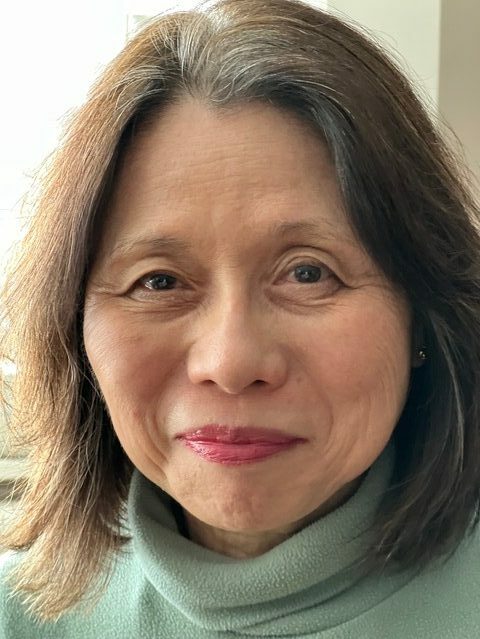
Judge Maryka Omatsu is the CFR's 2024-2025 Senior Honorary Legal Scholar-Activist.
In 1992, over 30 years ago, Maryka Omatsu was the first East Asian woman appointed a judge in Canada. Before her appointment, she practised human rights, environmental, indigenous and criminal law; worked for all levels of Government; taught law in Toronto, China, and Japan; and chaired the Ontario Human Rights Tribunal.
A 3rd generation Japanese Canadian, Judge Omatsu was a member of the negotiation team that in 1988 won a $450 Million Redress Settlement for the incarceration and dispossession of her community. She received awards for her book, Bittersweet Passage Redress & the Japanese Canadian Experience (1992) that documented that history and for her video, Swimming Upstream (2018) that set out the case for redress from British Columbia. Judge Omatsu co-chaired the Japanese Canadian campaign for Redress against the Province of B.C. In 2022, the BC Government awarded $100 Million to the Japanese Canadian community for the decades of racial discrimination that culminated in their incarceration and dispossession of all their personal and real property without compensation.
Most recently Judge Omatsu has been appointed to the Canadian Race Relations Foundation's Special Advisory Council (2018). She has been awarded: York University Senior Honorary Race & Gender Advocate (2024); Doctor of Laws, Metropolitan Toronto University (Ryerson) (2018); Order of Ontario (2015); National Asian Pacific Bar Association(US) Trail Blazer of the Year (2013); Federation of Asian Canadian Lawyers' Lifetime Achievement Award (2010).

Joan Sangster is the CFR's 2024-2025 Senior Honorary Historian.
Joan Sangster is Vanier Professor Emeritus at Trent University, where she taught in Gender and Women’s Studies, History, and Canadian Studies. She has co-edited labour and feminist essay collections and written eight monographs and many book chapters and articles in interdisciplinary and disciplinary venues dealing with working women, the labour movement, the history of the Left, the criminalization of women and girls, settler Indigenous relations and feminist ideas and movements.
Her research focuses on the intersection of class, gender and colonial relations in the context of Canada’s changing political economy, exploring, for instance, structural changes in the workforce and the gendering of occupations, how working women negotiated the tensions between family lives and wage earning, and crucially, the way in which Canadians mobilized to improve the social conditions under which they lived, whether that was in unions, social movements, and political parties or in other modes of resistance. Publications on criminalization and the law explored those marginalized by class, racial and patriarchal biases within the legal system, as well as the efforts of women to use the law to seek redress and justice: in other words, paying attention to the interplay of structural forces and the human agency of social actors. Examining both the criminalization of Indigenous women and colonial images of the Indigenous North, her work emphasizes how central the colonial project was to Canada’s evolution.
Sangster has also been concerned with discussions of theory, method and sources in historical research, including the uses of oral history. She is currently working in collaboration with the Centre for Feminist Research, York University, and other Canadian scholars on an oral history project that aims to recover, reclaim and archive marginalized feminist voices from women’s movements of the 1960s to the end of the 1980s.
A Fellow of the Royal Society of Canada and past president of the Canadian Historical Association/ Société historique du Canada, she had held visiting fellowships in Canadian Studies at McGill, Duke, and Princeton Universities. Her recent monograph, The Iconic North: Cultural Constructions of Aboriginal Life in Postwar Canada (2016) won the CHA/SHC’s Clio prize for the best book on the North and her Demanding Equality: A History of Canadian Feminism (2021) secured the CHA/SHC’s Hilda Neatby prize for the best book in women’s and gender history. She has been an associate editor of Labor: Studies in Working-Class Histories of the America and co-editor of Labour/le travail.
